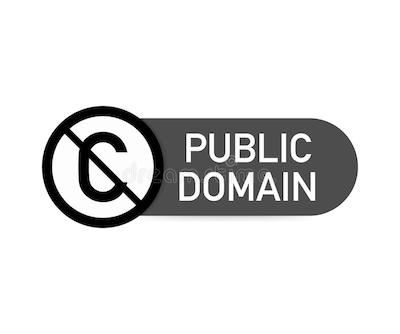Watching the comments posted to this newsletter's web site prompts many questions: Just how private are the facts that we record? Can we really "protect" our genealogy data? Should I copyright my data? Is my data automatically under copyright protection when I publish? Should I keep my data secret? Is it a good idea to do so? Or should I publish my genealogy data for all to see?
I do not know all the answers, but perhaps I can offer a few thoughts for your digestion.
 First of all, there is one major issue that we all need to recognize: facts are not protected by copyright laws in the United States. A collection of facts is public domain information. We might be able to claim a copyright on the originality used in arranging of those facts, and we might be able to claim a compilation copyright on large collections of facts; but each individual fact remains in the public domain.
First of all, there is one major issue that we all need to recognize: facts are not protected by copyright laws in the United States. A collection of facts is public domain information. We might be able to claim a copyright on the originality used in arranging of those facts, and we might be able to claim a compilation copyright on large collections of facts; but each individual fact remains in the public domain.
Next, there is the question of exactly what is “my data.” The genealogy data that I have collected consists of a collection of facts. As already stated, facts are not “owned” or copyrighted by anyone. I don’t own that information, at least not in the legal sense.
Next, most of the genealogy data we collect is obtained from public domain sources. I know that I obtained most of my information from birth records, marriage records, census records, military pension applications, and more. All of these are public domain sources of information and are already available to others, should they wish to look. In no way is the data to be considered "my private data" as I have no ownership over it. I simply transcribed data that is already in the public domain. I copied the information for my personal use, the same way anyone else can do by spending the same effort that I did to find the original (public) records. Therefore, it is not "my" data, it is everyone's public domain data that I happened to transcribe.
In a few cases, I may have supplemented those public facts with even more information that I obtained from family members or other non-public sources. Indeed, I did obtain a few pieces of information from a family Bible in my possession, information that has never been published before. However, the U.S. laws still insist that facts cannot be copyrighted. I interpret this to mean that facts are facts, regardless of the source of information. Whether I obtain a fact from a public record or from a private conversation or from an ancestor's Bible, it is still a fact, is not subject to copyright, and is not owned by me. A family relationship that I learned from a cousin is also a fact, not my "private" bit of information.
Next, what is the purpose of my hiding the information? Am I protecting anybody or any facts? As already mentioned, the facts are mostly public already. Most facts are readily available in public domain census records, birth records, death records and other locations.
I cannot "protect" those facts. In the case of deceased people, I don't see how I am protecting anyone. I never publicize information about living people; so, whether I publish my data online or not, I am not protecting anyone.
I have seen arguments that "Other people may take my data and republish it." In my mind, that's a good thing. If I have done a good job of research, wouldn't I want the correct information to be available to other descendants of these people, my distant cousins?
Next, I have seen arguments that "Other people publish inaccurate information, so I don't trust them and I will not publish my information." This strikes me as self-defeating: you are allowing their inaccurate information to remain unchallenged and uncorrected. When others search the web, they will find incorrect information and will probably perpetuate it by republishing those errors themselves. If you have correct information, it seems to me that you could do more good by publishing the correct information and thereby refuting the errors.
If you collect stories about the family and retell them in narrative form, you may be able to claim copyrights and “ownership” of those stories. However, that ownership excludes the facts buried within the stories. Facts are still facts and are not protected by copyrights or by any other legal protections in the United States.
Again, I do not have all the answers; but there is one thing that I am certain of: private individuals do not own “facts.”